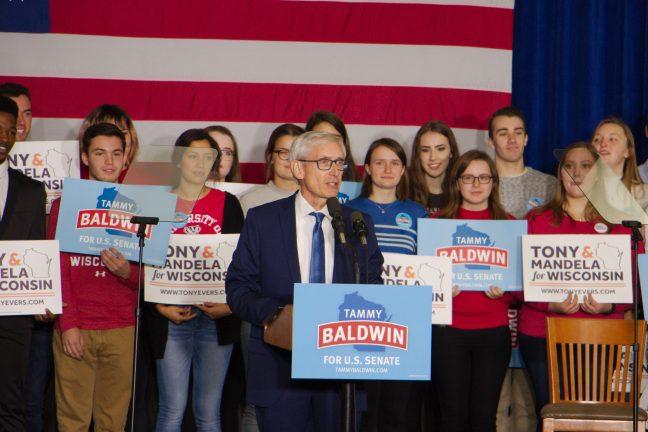In light of the Kimberly-Clark, Marinette Marine and Foxconn deals, Gov. Tony Evers said the state must revisit its discussions on large incentive packages to entice businesses that create or maintain jobs in Wisconsin.
In a new plan released by Evers late last month, “private companies receiving millions in taxpayer-funded subsidies would be required to notify state officials of any significant changes to projects for which they are receiving state investments,” according to the Milwaukee Journal Sentinel.
These subsidies generally take the form of conditional, refundable tax credits. There are risks associated with large taxpayer-funded subsidies — for example, farm subsidies tend to prop up large agribusinesses. But there are also benefits — incentive options can help protect our environment.
Unlike issuing bonds or giving out non-refundable tax credits, straight subsidies and refundable tax credits are shouldered by all taxpayers, who tend to be wary of every little risk but nonetheless deserve to know where their money is going. In these deals, the money will give a leg-up to both old and new industries.
The origin stories of these large incentives packages are often overlooked. The industry grew out of geographical endowments and everyday Wisconsin workers seeking to grow their company and innovate.
Wisconsin’s first paper mill, Kimberly-Clark, was founded in 1872 in Neenah, Wisconsin. Its first product was newsprint made from linen and cotton rags. In 1914, the company developed a cotton substitute called “cellucotton,” used by the U.S. Army during the first World War to treat wounds in place of scarce surgical cotton.
Today, the company is a multinational personal care corporation specializing in paper-based products. Their most well-known brands include Cottonelle, Depend, Huggies, Kleenex, Poise, Scott and Kotex.
Former Gov. Scott Walker reached a deal worth up to $28 million of refundable tax credits in exchange for the company to keep all 388 employees through 2023 and make at least $200 million in investments at the facility over the next five years.
Marinette Marine is a shipbuilding firm on the Menominee River, a tributary to Lake Michigan in Marinette, Wisconsin. It was established during WWII to meet the Navy’s growing demand for constructing littoral combat ships to be transported to the Atlantic.
At the end of 2008, its owner, Manitowoc Corp, sold the shipyard to the state-owned Italian shipbuilding group, Fincantieri. It is now called Fincantieri Marinette Marine, and recently completed a $73.5 million capital expansion program which transformed the firm into a modern shipbuilding powerhouse. Evers will be seeking $31 million of state-issued bonds to help the shipbuilder expand its shipyard infrastructure and compete for a lucrative federal shipbuilding contract.
Finally, Foxconn — the Taiwanese manufacturing company and the world’s largest contract assembler of electronics — announced last year it would be opening their first major US plant in Wisconsin. The factory will produce liquid-crystal display panels and will cover nearly 1.6 square miles of Mount Pleasant, Wisconsin, a small village near Racine.
As with the other major Wisconsin industries, access to the Great Lakes water supply is crucial. According to the “pay as you grow” contract signed in 2017 by Walker and Foxconn’s Chairman Terry Gou, the company will only earn the maximum amount of tax credits, $2.85 billion, after it has created and maintained 13,000 jobs and invested $9 billion.
Evers, however, has been skeptical over these multi-million dollar incentive packages.
“I want Kimberly-Clark to be successful,” Evers said. “I want Marinette Marine to be successful, but at the end of the day, can we continue to carry on this path? I think it’s an important discussion to have as a state.”
Evers said his budget sheds light on private companies receiving millions in taxpayer-funded subsidies. The plan moving forward is currently a vague nod to transparency and accountability, especially at the Wisconsin Economic Development Corp, who witnessed and approved the Foxconn deal.
These million-dollar contracts are interesting because collectively, they attempt to both save very old Wisconsin industries and also brace for the future, providing a safety-net for local economies while also anticipating what jobs will look like for the next generation of Wisconsin workers.
As indicated, Wisconsin has an incredible advantage with its abundance of lakes, rivers, and access to the Great Lakes. Large businesses are the ones who make this region of the country highly profitable.
Lianna Schwalenberg (lschwalenber@uwalumni.com) is a recent graduate with degrees in communication arts and philosophy.


